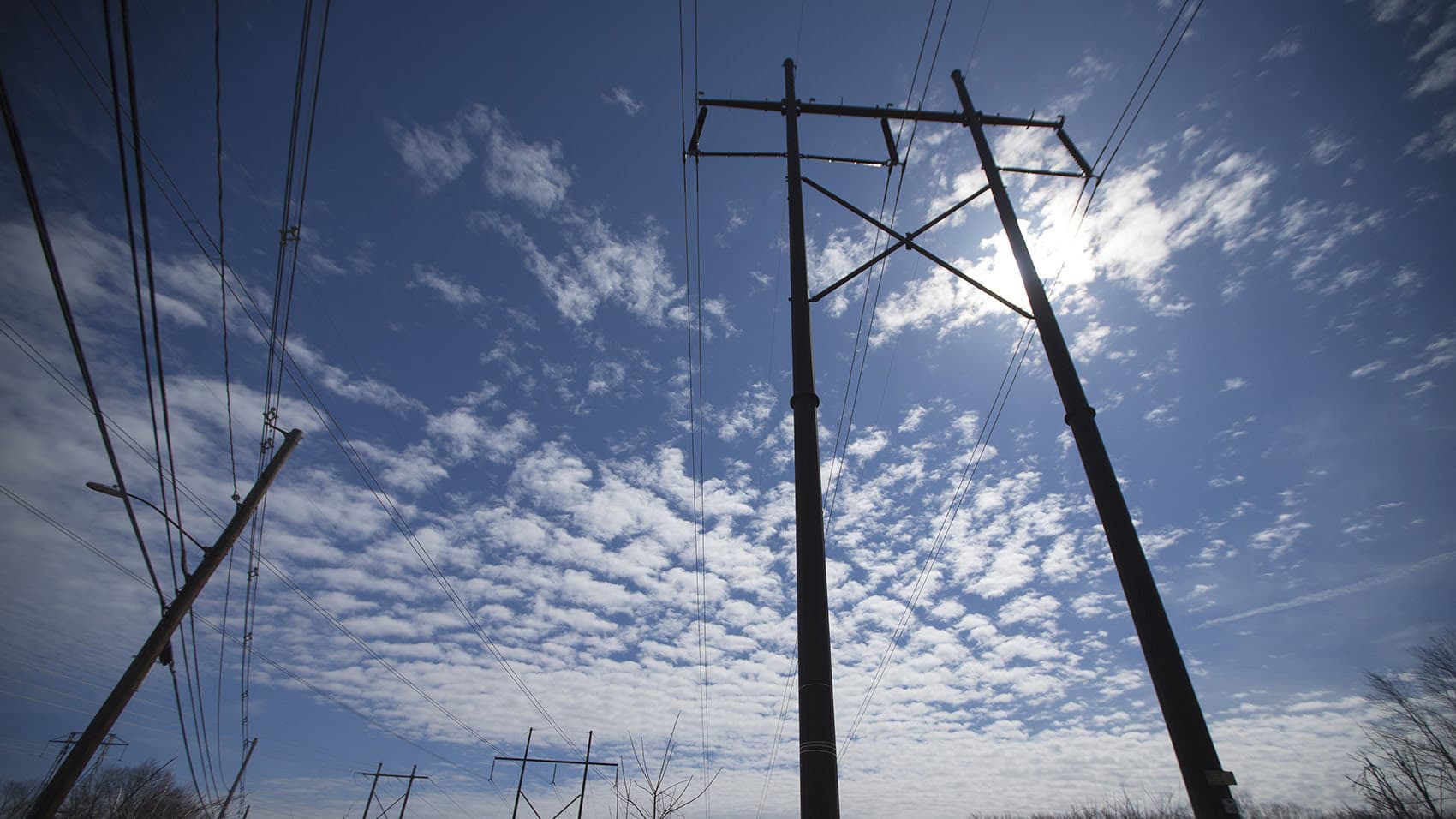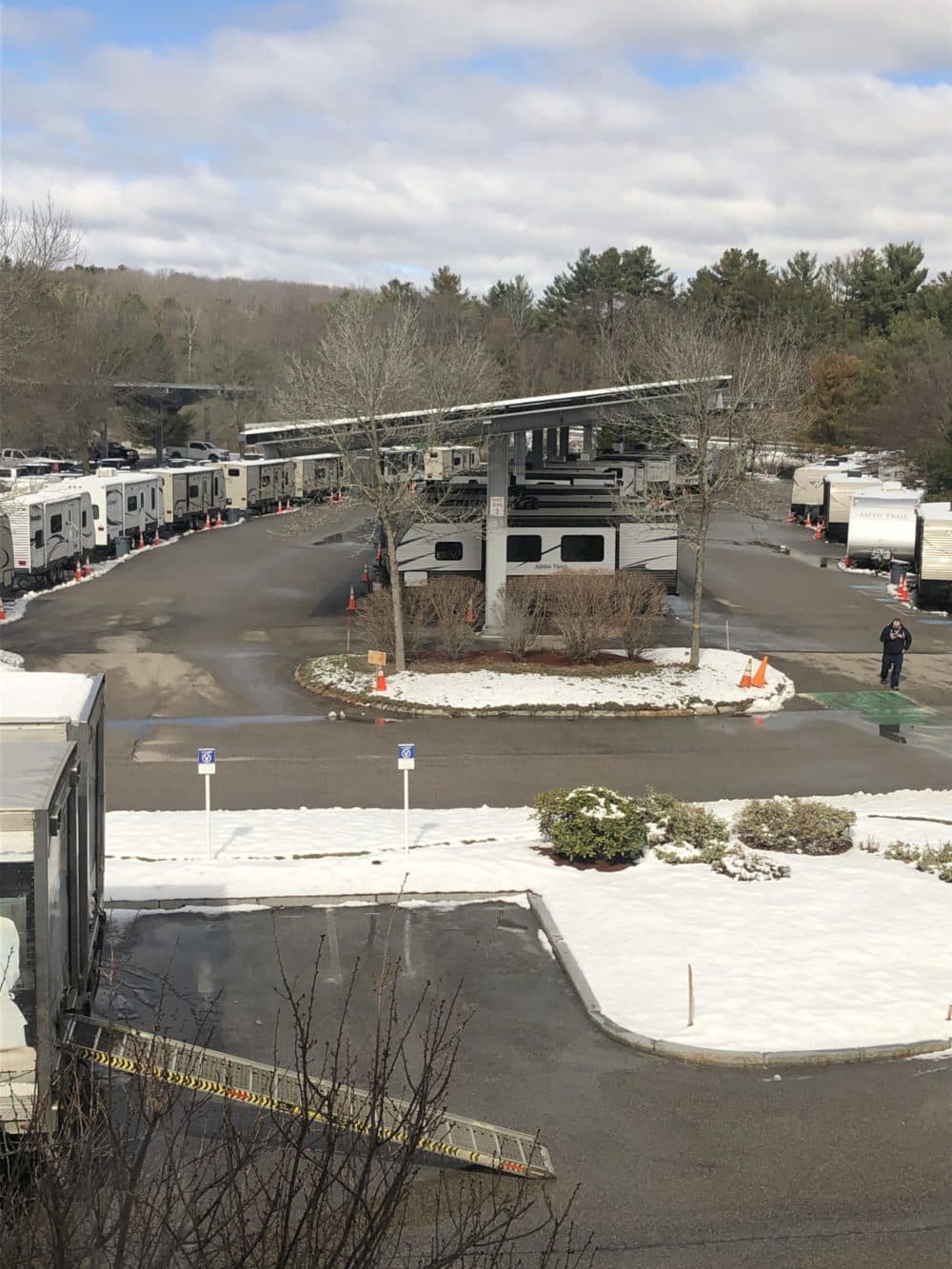Advertisement
Coronavirus Coverage
How New England Is Keeping The Lights On During The Pandemic
Resume
New England's electric grid has always been considered critical infrastructure. But the coronavirus crisis is changing the way we use electricity, and presenting unique challenges for those who keep the lights on.
During natural disasters like snowstorms and hurricanes, workers who keep the electric grid going are concerned mostly with wires staying up and fuel flowing to power plants. This time it's different.
"What makes this crisis so unique is, it's not about that supply chain. It's about people," says Dan Dolan, president of the New England Power Generators Association (NEPGA). "It's about making sure the workers are healthy, that they're able to get to the facility and keep the lights on for the rest of us."
NEPGA represents the majority of power plants that produce the region's electricity. And during this crisis, says Dolan, it's not just about keeping the lights on, "it's about making sure those ventilators keep operating."
In recent years, keeping the electric grid working has become far more complex as the mix of fuels has changed. The new "hybrid grid" now includes renewable energy sources that are only intermittently available to the grid, like solar and wind.
"For now, the system is operating remarkably well," says Dolan. The crisis arrived during an energy "shoulder season" — the mild spring months when demand usually decreases. However, the pandemic has also taken a significant load off the grid.
ISO New England, which oversees the reliability of the regional electric grid and runs the wholesale electricity market, estimates that demand has dropped 3-5% since the virus crisis struck. And the pandemic has led to changes in the way the system is run.
"It's a whole new world for all of us," says Anne George, ISO New England's senior vice president for external affairs.
Since mid-March, the ISO has operated at both its headquarters in Holyoke and at a backup control center in Windsor, Connecticut, with the two crews alternating 12-hour shifts. They've introduced enhanced pandemic cleaning protocols at both facilities to prevent the spread of the coronavirus.
And since 95% of ISO-New England employees are now working from home, the company has also been busy protecting against computer viruses.
"Cyber security threats don't go away," says George. They've issued warnings to workers to be especially vigilant against email phishing attacks, which could render the grid vulnerable.
While the ISO monitors the region's 9,000 miles of high-tension power lines, it's up to utilities to maintain them.
Phil Lavallee, director of National Grid's regional transmission control center, is monitoring the utility's grid from a secret location in Massachusetts. About 100 National Grid workers have volunteered to stay sequestered for 30 days, working 12-hour shifts. Lavallee says they have medical checks every day.

"We brought in a food service vendor that's preparing three meals a day and they're sequestered as well. They're not allowed to leave the site. We brought in about 30 trailers in the parking lot for sleeping arrangements, laundry service."
Lavallee says in his 33 years of working on the regional electric transmission system he has never experienced anything like this.
"It's abnormal, for sure," he says.
A new team of National Grid workers has volunteered to replace their colleagues at the control center later this month. But there is one person who will reman sequestered at the secret site, keeping the transmission system safe.
"I'm the site supervisor so I'll be staying the duration," Lavallee says.
This segment aired on April 9, 2020.
